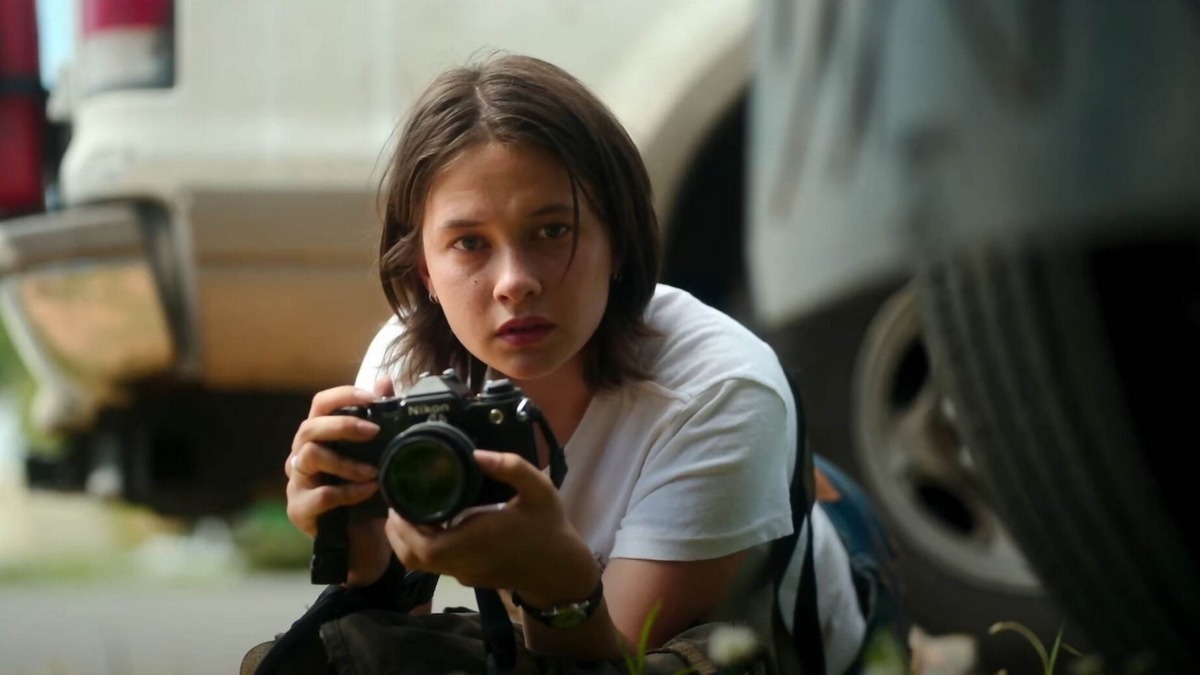Alex Garland’s latest film, “Civil War,” may appear to diverge from his signature style of crafting enigmatic and unconventional movies. Known for his exploration of complex themes in films like “Ex Machina,” “Annihilation,” and the divisive “Men,” Garland now delves into a grounded narrative centered around war journalism. Despite this departure, “Civil War” retains Garland’s penchant for thought-provoking storytelling, offering viewers a compelling exploration of symbolism and morality.
Set in a dystopian future where America is torn apart by civil conflict, “Civil War” follows a group of war journalists navigating the harrowing landscape of a country in turmoil. Garland’s decision to ground the narrative in realism, eschewing his typical sci-fi elements, adds a layer of authenticity to the film’s portrayal of the emotional journey of its characters.
At its core, “Civil War” is not merely about the conflict ravaging the nation; it’s a poignant commentary on the necessity of journalism in a chaotic world and the ethical dilemmas faced by those who bear witness to human suffering. Through the lens of war journalism, Garland explores themes of empathy, duty, and the moral responsibilities of storytellers in times of crisis.
The film unfolds as a road trip narrative, as the protagonists embark on a perilous journey to secure an interview with the soon-to-be-deposed President. Along the way, they confront the atrocities of war, grappling with their own complicity in the face of unimaginable violence. Each character’s perspective offers a nuanced exploration of the complexities of their profession, from shedding light on the darkest corners of humanity to succumbing to the allure of sensationalism.
Central to the narrative is the dynamic between Lee, a seasoned war photographer, and Jesse, a young aspiring journalist. Their evolving relationship serves as a microcosm of the film’s thematic exploration, as Lee confronts her own moral ambiguity while guiding Jesse through the horrors of war. Their mirrored fates underscore the film’s tragic underpinnings, challenging the audience to confront the consequences of their actions.
The climax of “Civil War” delivers a gut-wrenching denouement, as the characters find themselves engulfed in the chaos of the conflict. Lee’s selfless act of sacrifice, juxtaposed against Jesse’s pursuit of journalistic glory, epitomizes the film’s exploration of duty versus self-preservation. The scene serves as a sobering reminder of the moral complexities inherent in the pursuit of truth amidst adversity.
Ultimately, “Civil War” defies easy categorization, inviting viewers to grapple with its challenging themes long after the credits roll. Through its portrayal of war journalism and the human condition, the film forces us to confront our own complicity in the face of injustice, leaving an indelible impression on those who dare to engage with its profound message.


